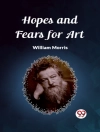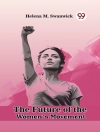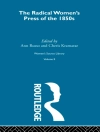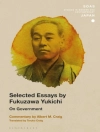The study of literature and culture is marked by various distinct understandings of passages – both as phenomena and critical concepts. These include the anthropological notion of rites of passage, the shopping arcades (Passagen) theorized by Walter Benjamin, the Middle Passage of the Atlantic slave trade, present-day forms of migration and resettlement, and understandings of translation and adaptation. Whether structural, semiotic, spatial/geographic, temporal, existential, societal or institutional, passages refer to processes of (status) change. They enable entrances and exits, arrivals and departures, while they also foster moments of liminality and suspension. They connect and thereby engender difference.
This volume is an exploration of passages as contexts and processes within which liminal experiences and encounters are situated. It aims to foster a concept-based, interdisciplinary dialogue on how to approach and theorize such a term. Based on the premise that concepts travel through times, contexts and discursive settings, a conceptual approach to passages provides the authors of this volume with the analytical tools to (re-)focus their research questions and create a meaningful exchange across disciplinary, national and linguistic boundaries.
Contributions from senior scholars and early-career researchers whose work focuses on areas such as cultural memory, performativity, space, media, (cultural) translation, ecocriticism, gender and race utilize specific understandings of passages and liminality, reflecting on their value and limits for their research.
قائمة المحتويات
List of figures
Notes on contributors
Acknowledgements
Introduction: approaching ‘passages’ from the perspective of travelling concepts, metaphors and narratives in the study of literature and culture
Elizabeth Kovach, Jens Kugele and Ansgar Nünning
Part I: Symbolic passages between media, genres, languages and cultures
1 The sound of Benjamin’s arcades
Rolf J. Goebel
2 Spectral passages: Christian Petzold’s Transit (2018) as a misadaption of Anna Seghers’s novel (1944) and allusion to Europe’s ‘Summer of Migration’
Max Bergmann
3 The passage from tragedy to novel in Álvaro Cunqueiro’s Un hombre que se parecía a Orestes
Marta Mariño Mexuto
4 Translating behind bars: cultural passages from Shakespeare to the Italian dialects
Beatrice Montorfano
5 Cultural translation as a poetics of movement
Marie-Christine Boucher
Part II: Theoretical passages as transitions in art and (non)human life
6 The utterance as transgression: contextual liminality and the rhetoric of the verisimilar
Tomi Moisio
7 Kafka’s actors: Josef K.’s journey to theatricality
Tanja Marcotte
8 From passage to maturity to liminal critique: Foucault’s care of the self as liminal practice
Ruben Pfizenmaier
9 Traversing Hell: Carl Gustav Jung and the practice of visionary travelling
Tommaso Alessandro Priviero
10 Multiple selves: understanding the nature of dissociation in Black Swan
Büke Sağlam
11 Passage and flow: oceanic dystopia in the self-conscious Anthropocene
Florian Mussgnug
Part III: Political passages related to identity, othering, supremacy and power
12 The gaze and the city: woman walking down the street
Martina Hrbková
13 Passages: reading before/for responsibility in Elizabeth Bowen’s The Death of the Heart (1938)
Laura Lainväe
14 Thirdspace and hospitality: migratory passage and the labyrinth of national (in)difference in Rachid Boudjedra’s Topographie idéale pour une agression caractérisée
Eric Wistrom
15 Passage into new realities: Albania(ns) at the turn of nineteenth and twentieth centuries through the eyes of European travel writers
Oriol Guni
16 Unmaking silence and future S in the midst of ‘The passing dreams of choice’ (Audre Lorde)
Susan Arndt and Xin Li
Index
عن المؤلف
Ansgar Nünning is Professor of English and American Literary and Cultural Studies at the Justus Liebig University Giessen.












